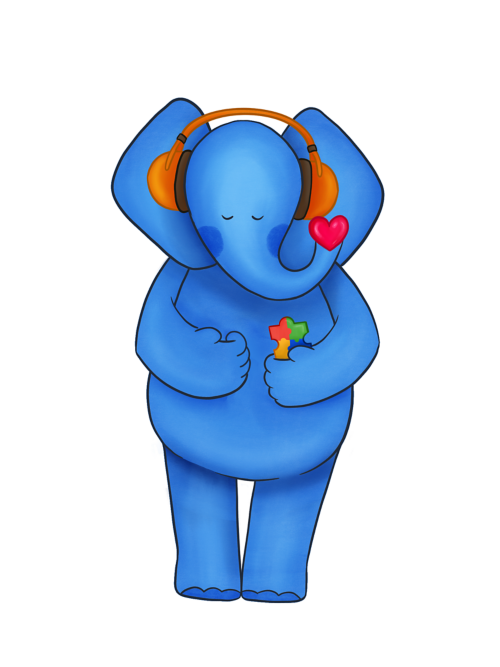How to Help Children with Autism Cope with Cancer Treatment
Read this blog post in Spanish and Portuguese.

Children with autism may struggle with sensory stimuli. This can be particularly challenging during cancer treatment. A group of health care professionals at Barretos Children's Cancer Hospital (Hospital de Amor), Brazil, are working on a project to improve care for autistic children and adolescents undergoing cancer treatment.
Many families of children with cancer would agree that cancer treatment is not an easy journey. It involves many hospital visits, needles, and tests. There are also constant changes in daily routine, and children often must be away from familiar people and places. Now imagine all of this, but with a child that requires adaptive care due to a neurodevelopmental disorder, such as autism.
Autism spectrum disorder (ASD) is a neurological and developmental disorder that begins early in life and lasts throughout a person’s lifespan. People with ASD often show signs of difficulty in social communication, engage in restricted, repetitive behaviors, and may struggle with interpreting and reacting to sensory stimuli (such as noises, taste, touch, and smell).
High-stress situations and new experiences may be triggering to some patients, and it may lead to change in their behavior and emotions. These changes may impact how they cope with their cancer treatment.
Unfortunately, not much is known about the experience of patients with autism and childhood cancer, nor their families’ difficulties. As a possible solution, we have developed a project in our hospital in Brazil, Barretos Children’s Cancer Hospital (Hospital de Amor), to humanize and adapt care for autistic children and adolescents with cancer.
Here are some important tips to help you during your child’s treatment.

Symbol of Hospital de Amor's program focused on humanizing and adapting care for autistic children and adolescents with cancer.
Let others know about your child’s needs
It’s important to communicate to everyone at the hospital that your child has autism, from the entire care team to the hospital receptionist. Autism does not have a physical trait; it’s a neurological condition. So, one may not “see” it.
As part of the healthcare team, always ask for consent to perform exams or explain to them what will happen.
As a caregiver, no one knows your child better than you. It’s important to share with members of the care team what soothes and calms your child and what works and doesn’t.
In Brazil, we have a special necklace that helps professionals identify that a child has autism. If available, it might help so that others may be sensible to your cause, and even offer some help if needed.
Because a child is still very much in development, some signs of autism may not be obvious to a health care provider. If you have doubts, request a developmental assessment, which a neuropsychologist can perform.
Help your child stay calm
It is important for patients to know what will happen to them. This is especially true for someone with autism. Knowing what to expect can help reduce anxiety and prevent feeling overwhelmed, having a meltdown, or withdrawing. Always tell your child where they will go for the day, what exams they will have, and who they will see. Communicate clearly and give them clear instructions.
Stimming is a type of behavior that your child may show. It might include flapping, humming, rocking, or vocal tics. It helps them keep calm. If you see them showing these behaviors, don’t ask them to stop; it’s helpful to them.
Visual aids may help a child with autism better understand what is going to happen to them, their diagnosis, and types of care. Ask your care team for patient education resources. You may also want to explore the Together by St. Jude™ online resource for additional resources, including videos and photos.
Consider staying in quiet areas where the patient can wait and where sensory stimulation, like noise, light, and smells, is minimal.
Advocate, advocate, advocate
It’s important to advocate. We know that autism has always been around, but only recently we have begun to understand it better. Unfortunately, not many people know where to start or how to adapt care for autistic children in a hospital setting. In our hospital, we are constantly advocating and searching for ways to provide care adapted to their needs to improve their quality of life—not only for the children but also for their most important advocate, their caregivers.
As your child’s most important advocate, please communicate your child’s needs and what you know helps them. Due to their social difficulties, they may not know how to express themselves adequately, so it is of great importance that you be that voice.





